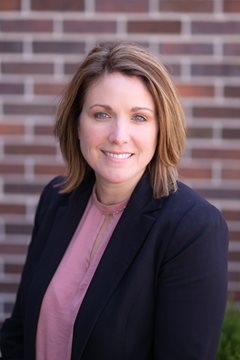
WHO needs an emergency fund?
To put it simply: you. It doesn’t matter if you have millions or next to nothing; no one is exempt from needing an emergency fund. No one can predict the future of their finances. According to AmericaSaves.org, low-income families with at least $500 in an emergency fund were better off financially than moderate-income families with less than this amount.
WHAT is an emergency fund?
As a general definition, an emergency fund is money set aside for unpredictable situations. What will you do if you lose your job or wreck your car? Are you able to make ends meet while dealing with a hit to your finances? According to CNBC, 66 million Americans are not prepared for these situations and have no savings.
To get a bit more specific, Lincoln Savings Bank recommends setting aside enough money to cover six months of expenses. That may sound impossible at the moment, but it is much easier to set aside money now, even if a little at a time, than to be faced with a financial tragedy and have no way out when it’s too late.
WHEN should I start my emergency fund?
NOW! There is no better time than today to start your emergency fund savings. But start with a plan. According to AmericaSaves.org, those with a savings plan are twice as likely to save successfully. Consider your budget and put a plan together than is aggressive, but affordable.
WHERE should I keep my emergency fund?
While it is fantastic to have established rainy-day savings in the first place, location plays a huge factor in the success of your funds. A savings account is your best option since your money is out of sight and out of mind, not easily spent, but accessible enough to use when absolutely necessary.
A 401k or investment account is a great option for long-term savings, but can incur penalties to withdraw funds. A checking account is so easily spent that it may not build quickly or at all. Lincoln Savings Bank offers some great account options for your emergency fund. We encourage you to set one up if you haven’t already!
WHY should I have an emergency fund?
To be straightforward, it would be foolish to avoid building an emergency fund. With an account in place, you actually end up saving money on your inevitable crisis (and let’s face it; it would be a miracle to make it through life unscathed by some form of financial emergency.) According to the Federal Reserve Board’s Division of Consumer and Community Affairs, 47% of Americans said they either could not afford an emergency expense of $400 or would cover it by selling something or borrowing money. Because of this, it is likely that your next emergency will end up costing you more if you’re unprepared because you may face high-cost loans and increased credit card balances.
Plus, your life will be a whole lot more peaceful when you are confronted with an emergency situation. You can face these tragedies with the knowledge that you are prepared. When you take the time to plan ahead and establish a respectable account for the unexpected disasters of life, they suddenly don’t seem like such an emergency.
If you’re ready to start building your emergency fund and you’re not sure where to start, we’re here to help! Stop into any of our branches or fill out our online form and we will put you in touch with one of our financial professionals that will help you get started!
Lincoln Savings Bank, Member FDIC



